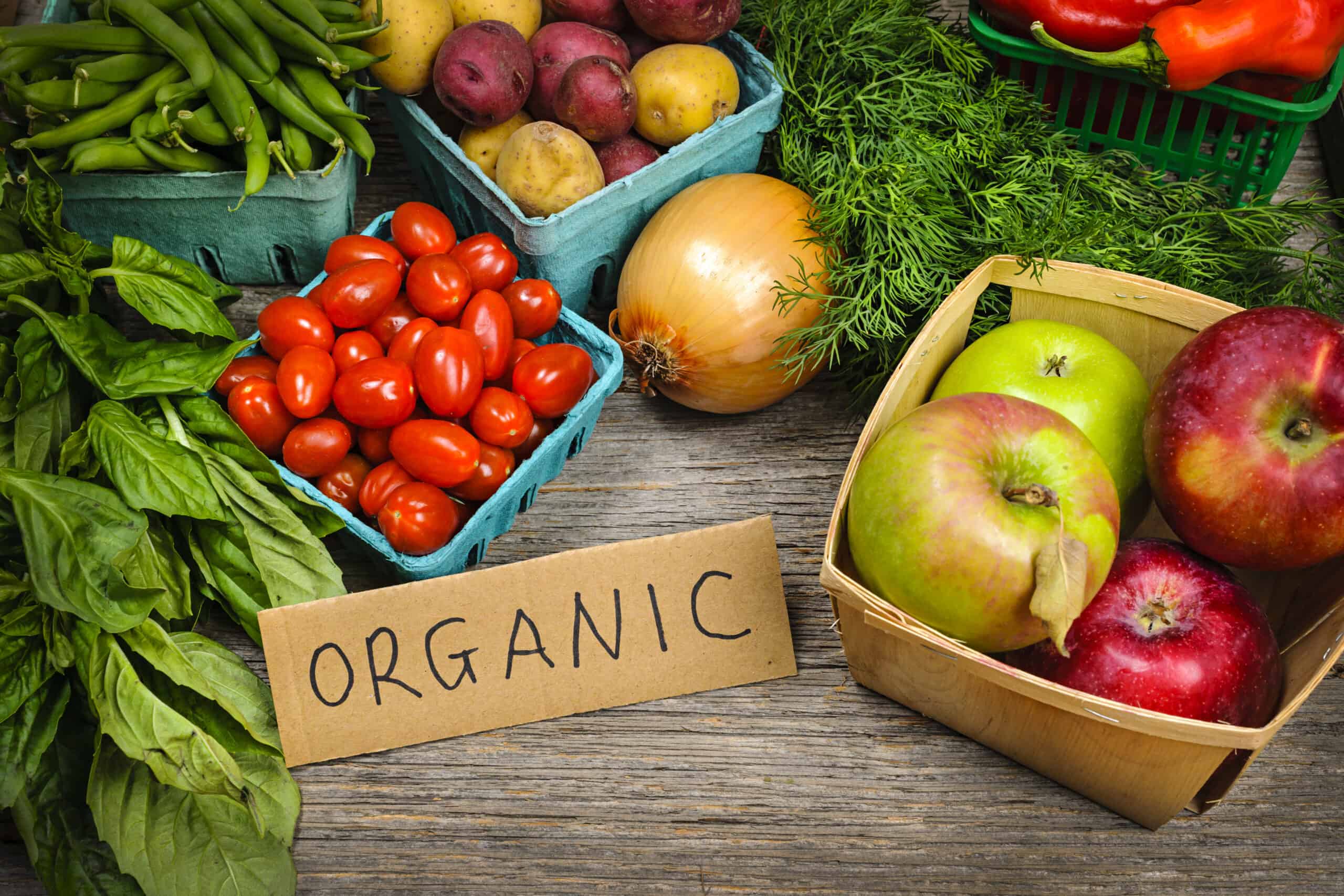Buying organic can come with a hefty price tag. But do you need all of your food to be organic to be healthy? They answer is confusing of when and how you should buy organic, especially if you’re on a budget.
The good news is that the Environmental Working Group (EWG), a non-profit organization of scientists, releases an annual report called the Shopper’s Guide To Pesticides in Produce. This report lists fruits and vegetables with the highest and lowest pesticide and herbicide residue left on the food after a traditional washing from the grocery store.
When times are tough, it certainly pays to know that you’re spending your cash wisely. EWG has a list of fruits and vegetables to always buy organic. Budget-conscious shoppers now know what to buy to save money at the grocery store or farmer’s market.
Below includes all of the food that should be bought organic including the most contaminated fruits and vegetables from the EWG’s annual report, that you should buy organic.
1. Meat
If you’re concerned about your health, the number one food you should buy organic has to be meat. There’s a whole host of reasons why this product should always be in your basket, regardless of the price.
Antibiotics
Regulations stipulated by the US Department of Agriculture state that farmers are prohibited from administering antibiotics to all animals raised to organic standards. You might think that this is no great shakes, but there’s plenty of evidence to suggest that regularly medicating healthy animals with these drugs is doing far more harm than good.
As with humans, the overuse of antibiotics means that certain strains of bacteria can become resistant to medication that has worked in the past. The concern is that as many of the antibiotics routinely administered to commercially reared animals are similar in nature to those used in humans, there’s a worry we could be creating “superbugs” that will eventually become unresponsive to the treatments we have available.
Thankfully the FDA is slowly beginning to realize the damage that this indiscriminate use of antibiotics has caused and is trying make amends. Unfortunately this may be too little, too late, and critics say that the new guidelines may still be open to abuse. For this reason, if you’re concerned about good health, you have to seriously ask yourself if eating non organic meat is really worth the risk.
Related: 6 Surprising Protein Facts that Meat Eaters will Love
Growth Hormones
It’s not just the antibiotic issue that we should be worried about. Many commercially farmed animals are routinely given hormone implants to encourage them to gain weight in a short space of time. Although the FDA has detailed guidelines for the acceptable amounts that can be found in meat products, there’s still a great deal of controversy about the potential effects on human health.
As these hormones are endocrine disruptors, it’s difficult to know what exposure to these chemicals over a long period of time means for your wellbeing. For pregnant women and children in particular, this is one sure fire reason why meat should always be a food you should buy organic.
Related: Top Reasons to Eat Organic
2. Milk and Dairy Products
Dollar for dollar, organic milk can cost more than gasoline per gallon, so for those of us responsible for the shopping budget, is it really worth the price tag?
Some people argue that the mark up on organic milk simply doesn’t tally with the hike in price as nutritionally it offers the same as its non-organic counterpart. However, when it comes to accountability, does price really matter?
In addition to being hormone and antibiotic free, USDA regulations state that cattle raised to produce non organic milk must get 30% of their feed from fresh pastures, and are prohibited from eating genetically modified grain, or feed which has been treated with chemical fertilizers or pesticides. Bearing in mind the fact that a large number of children are consuming dairy products daily, (and not just milk, but ice cream, yogurts and butter made with non organic milk) again it all comes down to risk.
Related: 6 Reasons to Eat More Raw Food
3. Fruit and Vegetables
You’d be forgiven for thinking that all of our fruit and vegetables would be pretty safe to eat. Not so. Every year The Environmental Working Group produces a list of fruit and vegetables now known as “The Dirty Dozen” which have been shown to contain the highest levels of pesticides. Shockingly, top of the list are apples (how many of us send our kids to school with one of those in their lunchbox every day?) closely followed by strawberries and grapes.
Many of these pesticides and insecticides are thought to be linked to developmental defects in children, Parkinson’s disease and even cancer.
Here is the “dirty dozen” list of the fruits and vegetables with the most chemical residue beginning with the most contaminated food.
1. Strawberries
2. Spinach
3. Kale
4. Nectarines
5. Apples
6. Grapes
7. Peaches
8. Cherries
9. Pears
10. Tomatoes
11. Celery
12. Potatoes
Related: Boost Energy Naturally with these 3 Foods
Takeaway
The message when it comes to which food you should buy organic is clear beyond doubt. Health conscious shoppers on a budget should never cut corners when it comes to purchasing non organic animal products, as the ambiguity over safety concerns are just not worth the risk. However, when it comes to fruit and vegetables the matter is less clear.
Pesticides are a major concern, and they’re hard to avoid if you don’t buy organic. We certainly don’t advise that you cut back on this crucial source of nutrients, or swap your apples for potato chips, but sticking to buying organic produce from the fruit and vegetables on the dirty dozen list certainly makes a lot of sense.
If you can’t afford to buy all your fruit and vegetables from an organic grocer, be sure to invest in a specialized cleaning product, and wash all your produce thoroughly before consumption.
As for the rest, well, fresh is undoubtedly always best. Avoid spending big bucks on processed or pre-packaged foods which may be labelled organic. Okay, the ingredients may come from a reputable source, but the amount of processing, (plus all the added extras like sugar) mean they’re simply not worth the dollar.
We suggest always buying fresh from a farmer’s market where you can ask questions about the produce. This way you can be 100% certain of what you’re buying. Shopping this way isn’t just great for your wallet, it’s far better for the animals, the environment and ultimately your health.
***********************
 Sarah Murphy trained at the College of Naturopathic Medicine in London, England, where she specialized in Western Herbal Medicine and Ayurveda. She writes widely about natural health, and is passionate about empowering people to take better care of their own well-being.
Sarah Murphy trained at the College of Naturopathic Medicine in London, England, where she specialized in Western Herbal Medicine and Ayurveda. She writes widely about natural health, and is passionate about empowering people to take better care of their own well-being.
Photo by Muffet
Originally published in 2/2014, Edited and Updated on 10/20/2020


